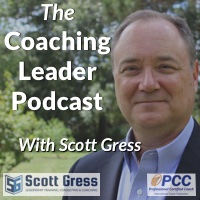

What an awesome sentiment that is classically American. I can do it! You can almost see in your mind’s eye the iconic picture of “Rosie the Riveter” with the words, “We can do it” above her. Whether it was Geraldine Doyle or Naomi Parker who was originally depicted doesn’t really matter. It inspired millions during World War II to get busy with the war effort and get it done.
My own father had his favorite expressions which shaped the young mind of myself and my sister. I suspect they were not original with him, but he used them as teaching points. “Do your own thinking” “choose your friends wisely” and “can’t never did anything.” As a youngster it took me a while to understand the latter. Eventually the wisdom came to me, if you say that you can’t, you won’t. It is defeatist thinking. But if you say you can, then you will find a way. Perhaps he picked it up from the marines who like to say, “improvise, adapt and overcome.” It is exemplified by the courageous person who “steps forward” and “steps up” volunteering to get it done. Awesome.
This is powerful thinking. It is often just what is sorely needed. It builds on the truths spoken of in the previous blog (“it will be ok”). This is where we push ahead based upon our strong faith in God to sustain us and strengthen us and even bless our efforts. This is such good and wholesome thinking and behavior for the Christian leader. Until it is not.
Pastors and church leaders will often step forward, step up and get it done. Thank you! We appreciate you. You are a huge blessing!
But sometimes, mixed into that thinking are some other thoughts that are not so righteous or wholesome or pure. For example:
I’ll step up and I can get it done because…
- I can do it because most others just don’t have what it takes (I’m smarter than they are).
- I can do it because those “losers” won’t get off their duffs.
- I can do it because I don’t want someone else to screw it up.
- I can do it because I want it done my way.
- I can do it because I want the glory and credit.
- I can do it because then God will be pleased with me and I’ll feel better about myself.
- I can do it because it would be way too much work to get somebody else to do it, teach them what to do and support them through to the end.
- I can do it because I don’t want to get criticized by giving it to someone else.
You get the picture. But it can get worse. Many if not most churches are yearning for good leadership and leaders. But look at the above. Yes, you, the church leaders and you, the pastor, can do it. But such determination that “you can do it” can get in the way. It can actually be the thinking that undermines developing others. It can excuse you into hoarding ministry and control for yourself.
Pause, read that last paragraph again. We’ll wait.
The problems with entrenched leadership runs deep. Things won’t change with a few leadership classes or books you read. But it may begin to shift if you become more aware of how “I can do it” works against you.
Instead of this often laudable, but potentially prideful or even sinful expression, start using another one: “how can this be an opportunity to engage another?” It is an attitude and mindset that sees what you are doing as a means to invite and involve and develop others.
So many healthy results will cascade from this mind shift:
- New believers will be affirmed and see that God can use them, even when it begins with the most mundane tasks.
- Existing leaders will begin to adopt a healthy humility and will begin to share the ministry through the value of discipling and developing the next generation.
- When someone begins to serve in the name of the Lord, they want to do well, and that includes growing closer to God. Church, communion reception and Bible study attendance will increase as will their giving.
- The circle of participants will increase to include non-member or inactive spouses and children, friends and extended family of those who are given some responsibility.
- Praise to God will increase as will professions of faith and baptisms.
Sure you can talk yourself into the wholesome and righteous use of “I can do it” but be careful, it can easily slip into denial. Instead, shift your thinking. At every turn, with every activity, ask yourself, “who can I invite? Who can I involve? How can this be an opportunity to engage someone new?”
It’s simple but it is not easy. You are overcoming a habit.And this is where a coach can come in. A coach is a thinking partner, an accountability partner, one who reminds you of God’s promises, one who speaks words of encouragement and helps you make that shift. It will make all the difference in the world. Let me know how I can be supportive of you in your ministry. Drop me an email. I’m here to help.
Rev. Scott Gress is believes in Growing People for Ministry by focussing on leadership, discipleship and teamwork. Contact Scott if you are interested in him working with you or your church. A free 30 minutes sample session is available to explore how you might work best together. The Coaching Leader Podcast is also available on iTunes and his YouTube page. You can contact Scott through email scottgress@me.com or his blog page scottgress.com or at 561-542-4472
"Growing People for Ministry" Leadership + Discipleship + Teamwork
Check out the: Coaching Leader Podcast!

